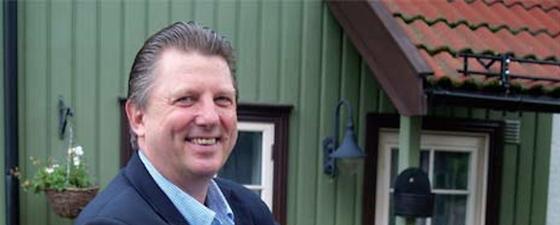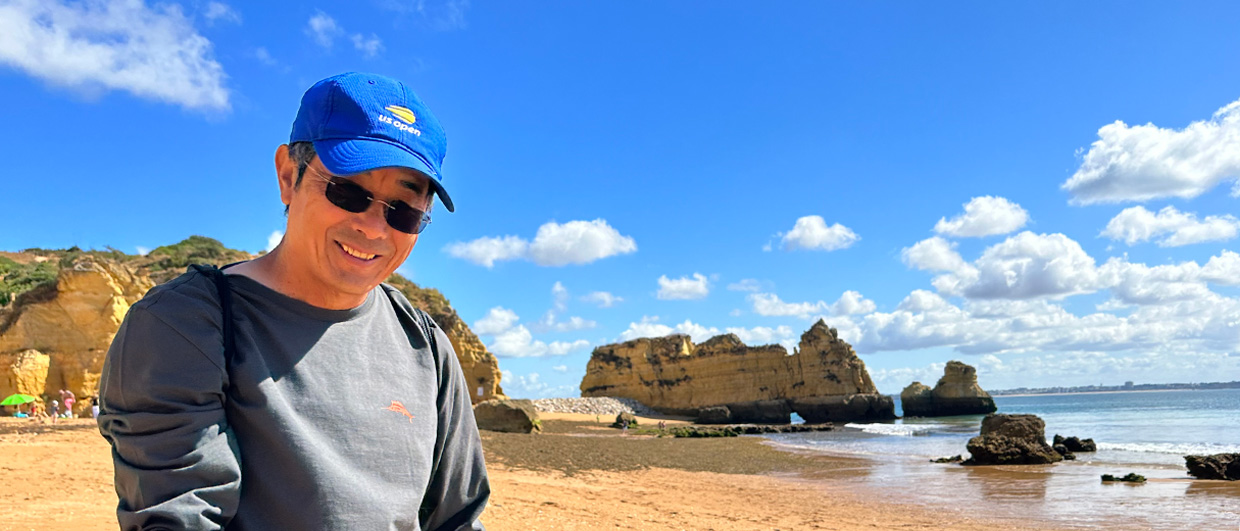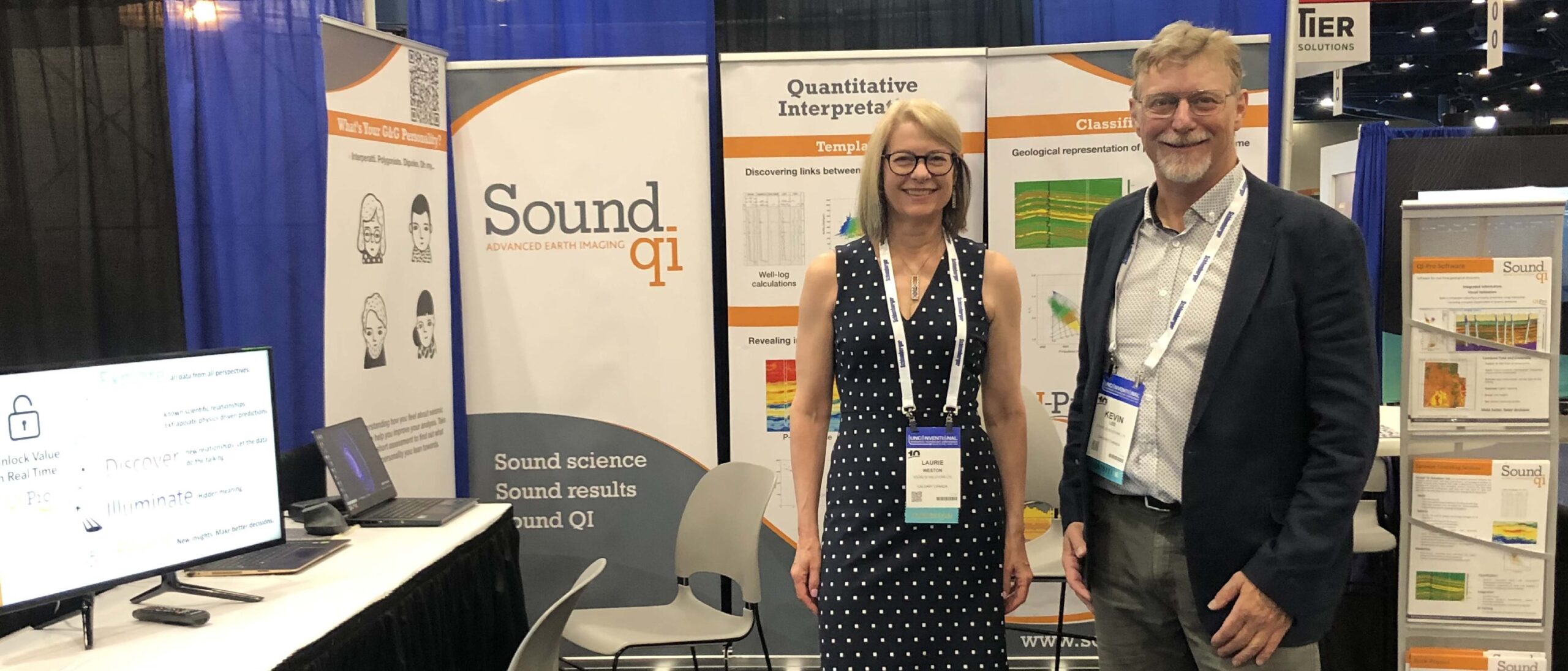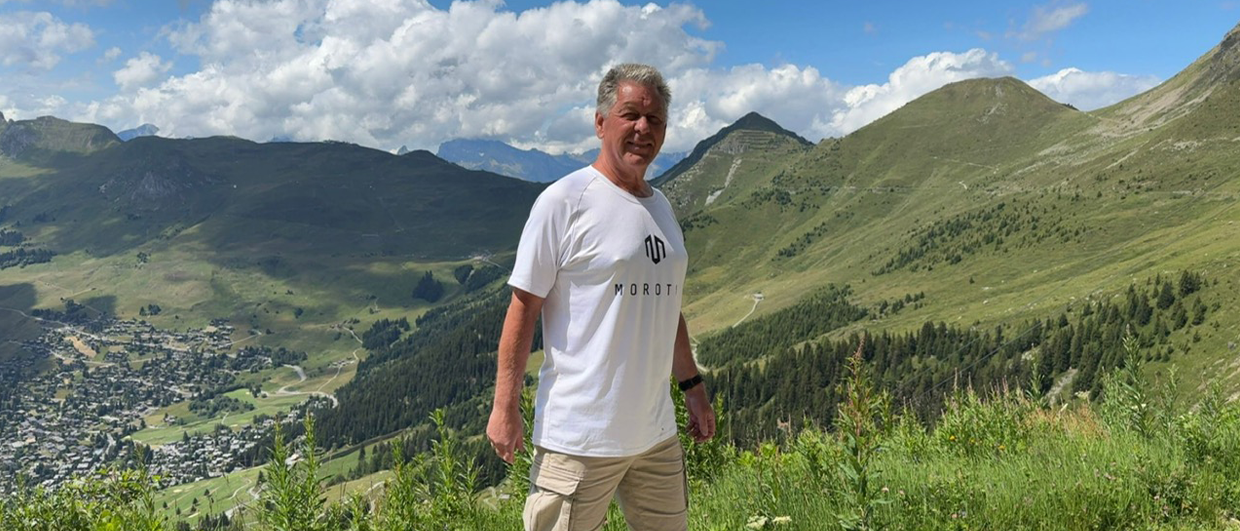Prologue: Geir offers me a ride back to town in his small Fiat 500 from 1974. I ask him about the safety belts. “I rely on the air bags,” he answers. A little bewildered, as this car was built long before air bags were introduced, I look for them, but of course, they don’t exist. This is just the way this colourful man talks, a vivid and expressive use of language originating in a mind with few limitations. In many ways, his language reflects his way of living his life as a geologist in a globalised world.
Kabul, Afghanistan, January 14, 2008. A quiet evening, following a day making preparations for the oil industry to explore and exploit the hydrocarbon riches of the war torn country. Geir Ytreland, project manager of the Oil for Development team, is in a meeting with the Afghan Minster of Mines. Then, all of a sudden, there is an explosion, not far away. What’s happening? A few moments later it is clear that a terrorist attack has taken place, very close. But he doesn’t know exactly where.
Geir gets a text message on his mobile phone. “Where are you?” asks his wife from their cosy house outside Oslo. The BBC has just told the whole world that the Serena Hotel in Kabul has been attacked. Geir is staying in that hotel. By chance he was in a different place this evening, when a Norwegian journalist was killed and the Norwegian Minister of Foreign Affairs had to hide in the basement during the shootout.
The next day Geir was brought to the hotel in an armoured car and found his way to his hotel room to get his luggage and 10,000 dollars in cash. Many years spent away from home, getting acquainted with different cultures, had taught him how to calmly solve problems then and there. As a memory of a very tragic evening, Geir has kept the text message he got from his anxious wife.
Travelling worldwide
 This same question, “where are you?”, family, friends and colleagues have asking for the last three decades or so. They all know that Geir is always on the move, always seeking new challenges, whether in Lomé, London, Venezuela, Stavanger, Kabul, Los Angeles, Balikpapan, Houston, Dhahran, or Dili – just to mention a few of the places where he has spent time and brought vitality to local communities.
This same question, “where are you?”, family, friends and colleagues have asking for the last three decades or so. They all know that Geir is always on the move, always seeking new challenges, whether in Lomé, London, Venezuela, Stavanger, Kabul, Los Angeles, Balikpapan, Houston, Dhahran, or Dili – just to mention a few of the places where he has spent time and brought vitality to local communities.
“When I worked as a geologist in Norsk Hydro, Oslo, I was offered the position as General Manager in Caracas on a Monday. I accepted the same day, got instructions on Tuesday, and on Wednesday I left,” Geir says, thereby explaining with a few simple words that he has an open mind, and he is always ready for new missions.
He ended up spending six years in Venezuela, five of them being in charge of the Norsk Hydro office, the last year “dating a Venezuelan woman and just having a good time”. While Venezuela was a treat, the assignment as an administrator did not appeal to a guy who prefers to be close to where the action is.
Today, following 32 years in exile, he is living with his new wife in Drøbak, a small town south of Oslo. Here he makes a living as a consulting geologist. However, he is still travelling, always on the move, assisting oil companies and consultancies wherever he is needed. He also helps the Norwegian government’s effort to export knowledge about good governance, regulatory framework and resource assessment to third world countries with an oil or gas potential.
When time allows, he drives 450 km to his cabin in the mountains. Here, he carries drinking water, lights the fire and applies his skills as a hunter, or enjoys long hikes accompanied only by his dog. Also, this is a good place to dream about his childhood summers far north.
Svalbard – a good start
 Man’s best friend, in particular for a field geologist spending months on his own with polar bears as a constant threat. Photo: PrivateSo, let’s go back to where it all started. To Svalbard, an archipelago in the Arctic, famous for its magnificent outcrops and pristine wilderness,infamous for its harsh climate and difficult logistics. This is where Geir, twelve years old, spent his first full summer in a drilling camp, along with his parents and two brothers. This was the beginning of a long career as an explorationist looking for oil and gas all around the world.
Man’s best friend, in particular for a field geologist spending months on his own with polar bears as a constant threat. Photo: PrivateSo, let’s go back to where it all started. To Svalbard, an archipelago in the Arctic, famous for its magnificent outcrops and pristine wilderness,infamous for its harsh climate and difficult logistics. This is where Geir, twelve years old, spent his first full summer in a drilling camp, along with his parents and two brothers. This was the beginning of a long career as an explorationist looking for oil and gas all around the world.
His father, Ivar, was instrumental in a drilling campaign on Svalbard long before companies started looking for oil in the Norwegian North Sea in 1966. With two others he formed the company Norsk Polar Navigasjon, and in 1964 they sunk their second well on the tundra, the first having been drilled two years before.
Geir’s father was a true adventurer, with a background as a trapper in North East Greenland, where he wintered two consecutive years in the late 1940’s. In the early 1960’s he continued his interest in the Arctic, but now exploring for hydrocarbons, well ahead of better known companies like Shell and Fina that have also actively explored these islands. For Geir it was the start of ten consecutive summers as a field assistant, practicing as helper, cook and finally as assistant to the well site geologist. He developed a passion for the Arctic himself, and in the late 1970’s ended up as a master’s student in geology doing field work on Tertiary sandstones on the western side of Spitsbergen.
Two summers, almost three months each time, he spent by himself in this remote setting. Well, not entirely by himself – we must not forget the dogs, the polar bears, and the rest of the wildlife that abound in Svalbard. His supervisor visited him for two or three days, and some Russians came by for a couple of hours, including some time for trading, but for the rest of the time he had to rely solely on himself to survive. And remember, this was more than 30 years ago; no telephone, no short-wave radio; there was absolutely no way to get in contact with others if trouble came by. It was just Geir and his dogs.
“The first month was the worst, after that I became used to having nobody to talk to,” he explains stoically.
Food was scarce. Geir’s skills as a hunter were therefore very useful and, getting to like self-sufficiency, canned food was replaced with birds and seal. Altogether he ended up shooting and eating eleven different types of birds. Hunting seals was a different challenge. Early in the summer he would hunt on the ice, moving slowly and almost invisibly, like the polar bear, towards the victim. Later, when the ice had melted, he would find his prey swimming in the water by using his 14 ft boat with an outboard engine.
“I had a fantastic time doing fieldwork, hiking and hunting. My previous years on Svalbard had made me love the outdoor life, so the two summers I spent as a field geologist have been some of the most fulfilling moments of my life.”
A rewarding time, certainly, in terms of a good quality of life, but it also helped him grow as a human being into a mature adult. In order to understand the choices he made through the rest of his career, it is necessary to appreciate that in Svalbard Geir learned that you have to rely on yourself, and that it is only hard and honest work that pays off in the long run.
Sink or swim
 After graduating at the University of Bergen with a degree in sedimentology, Geir’s first assignment as a professional geologist was with Union Oil in Stavanger. His fellow students had warned him that Statoil would be better, and almost without exception they all started working for the Norwegian major. Geir, however, preferred the American company, something that he has never been sorry for. In fact, he is still very pleased with his first preference, as he feels it made him into a full-fledged petroleum geologist.
After graduating at the University of Bergen with a degree in sedimentology, Geir’s first assignment as a professional geologist was with Union Oil in Stavanger. His fellow students had warned him that Statoil would be better, and almost without exception they all started working for the Norwegian major. Geir, however, preferred the American company, something that he has never been sorry for. In fact, he is still very pleased with his first preference, as he feels it made him into a full-fledged petroleum geologist.
“It was a good place to work. My ability and enthusiasm to take responsibility was appreciated. But first I had to learn ‘to swim’, and for that purpose they offered an excellent training with a mixture of working in the office and duties offshore.” First, three years in Stavanger working in the North Sea, and then three years in London, getting experience in Africa, before being transferred to Los Angeles in 1986. West Texas Intermediate Crude had now bottomed at less than USD 10 per barrel, and lots of geologists had to leave the company. Geir, the energetic guy with a great sense of humour, survived.
Union Oil became Unocal, and Geir, back in Norway for a short stint, was off to Balikpapan, Borneo, Indonesia. Once again he had to learn ‘to swim’. Out of 2,200 employees, there were only 14 expats, and he soon learnt to improvise. If successful, he was praised, if not, he got the blame. His stay was during an active drilling campaign with two rigs. What mattered was to get down to the target as fast as possible. “ROP is king,” was the slogan (ROP = rate of penetration).
“I had three fantastic years in Indonesia,” Geir says. He became fluent in Indonesian, something required by the company if you wanted to stay – a qualification which made him keen to undertake a tough 530 km biking trip through Central Borneo that nearly killed him and his accompanying friend. Water was in short supply all the time, and finally, almost too late, they had to give in and were rescued by the locals. Nevertheless, he really enjoyed the trip, despite the hardships, biting mosquitoes and numerous bugs, just because it was another true adventure into the wilderness, but in the tropics, instead of the Arctic. “Proper planning is meaningful,” was the vital lesson learnt.
His career with Union and Unocal ended in Houston after thirteen years of dedicated service.
“It was an excellent school, I learned a lot, they taught me everything, and the company took care of me. I also learned how to solve problems the American way. Leaving colleagues and friends was like a divorce.”
Making a difference
 Geir loves the action and buzz of life in the field, working with engineers, and taking responsibility. But he has also learnt to act as a manager, and when serving third world countries, he is a strong advocate of transparency between all parties. There is no room for compromise on this point. Photo: PrivateDhahran, Saudi Arabia, October 6, 2002. Another quiet evening following a day assisting Saudi Aramco in the search for additional oil and gas resources in the Permo-Triassic Khuff formation. Geir is having dinner at a restaurant with a friend and colleague. Then, all of a sudden, an explosion is heard not far away. He can feel the pressure from the blast, the dust is everywhere. What’s happening? Has a building collapsed? A few moments later it is clear to everyone that a suicide bombing is responsible.
Geir loves the action and buzz of life in the field, working with engineers, and taking responsibility. But he has also learnt to act as a manager, and when serving third world countries, he is a strong advocate of transparency between all parties. There is no room for compromise on this point. Photo: PrivateDhahran, Saudi Arabia, October 6, 2002. Another quiet evening following a day assisting Saudi Aramco in the search for additional oil and gas resources in the Permo-Triassic Khuff formation. Geir is having dinner at a restaurant with a friend and colleague. Then, all of a sudden, an explosion is heard not far away. He can feel the pressure from the blast, the dust is everywhere. What’s happening? Has a building collapsed? A few moments later it is clear to everyone that a suicide bombing is responsible.
This was the first time that Geir was caught up in a terrorist attack – Kabul, 6 years later, was the second time. He does not intend asking for trouble, but just happens to prefer places that the rest of us would rather stay away from.
Working as a consultant within a culture with little freedom to roam around the country did not appeal to him in the long run, so he left Saudi Arabia after almost three years, not for an easy life in his newly bought house in his home country, but for new challenges in the Far East. His father, now 84 years old, who Geir has great respect for, and still listens to for both inspiration and advise, had seen an advertisement in the newspaper which he thought would be ideal for his son. The Norwegian Oil for Development Initiative1 (The Norwegian Petroleum Directorate) was looking for an experienced geologist to assist East Timor in preparing the new nation for oil and gas exploration. East Timor became a sovereign state in 2002, and it still suffers the aftereffects of a decades-long independence struggle against Indonesia, and colonial rule by Portugal before that. The country was in a desperate need of experienced oilmen. Geir became head of a mostly Norwegian team that assisted in building a legal framework and helped carry out an international licensing round. Geir was, no doubt, the right person, and for him, definitely at the right time.
That was the beginning of two and a half years that have made a lasting impression. “Assisting developing nations makes sense, and my knowledge and experience can make a difference,” he says. He also believes that his nearly 30 years of oil industry experience has a value within organisations largely managed by economists and political scientists.
“I really enjoyed my time in East Timor, even if the job was very demanding, always working, lots of early mornings and late nights.”
Small money, big results
“The most important things for human beings are firstly security, and secondly energy,” says Geir. This is easy to accept, but Geir, after having worked and lived in places like Indonesia, East Timor and Afghanistan, where both security and energy supply is far below western standards, knows more about this than most of us.
“People in poor countries have a desperate need for a small amount of energy, simply for cooking and light – a basic need that we take for granted, but they can’t.”
Geir goes on to tell his favourite story, illustrating how a small amount of money and some simple tools can make a difference to a lot of people. It just so happens that there is an active petroleum system in East Timor. Gas leakages and oil seeps are found in many places, and some of the small “fields” have caught fire, making them both an energy resource and a pollutant. Together with a New Zealand engineer, this Norwegian handyman built a small power station based on burning methane. It had the capacity to serve a village of some 8,000 people, who had very modest needs when it comes to electricity. With 12 hour darkness all year round, a small bulb is of great help in the home, from enabling the mother to mend the clothes, to allowing the daughter to complete her homework. Making use, among other things, of an old Land Rover engine, a large piece of tarpaulin and a kitchen exhauster fan, less than 2,000 dollars were spent. In addition, the World Bank offered carbon credits, because burning methane could pay 600,000 dollars per year to the Timorese government.
“Small things may mean a lot. This is why assisting developing nations is very meaningful,” Geir says. But he is fully aware of the challenges inherent in this field, summarised by two simple words: incompetence and corruption. Both, regrettably, are found in some of the multilateral organisations.
“Corruption is the main scourge of developing nations. Transparency is thus the most fundamental problem when building a nation. There is no way we can compromise on transparency, openness and proper competition between qualified investors.”
Always a geologist
Geir has a 30-35 year long career to look back on. It has brought him fun, excitement and knowledge; it has made him into a globetrotter, and it has enabled him to use the best parts of himself. He makes no secret of the fact that it has brought him a lot of satisfaction. He has enjoyed life as a travelling geologist, always bringing his family with him, and buying old cars, motorbikes and even airplanes when arriving a new country. This is probably why he does not regret anything he has done or choices he has made. On the other hand, he may regret things he has not done – but we’re not sure we dare ask about the wild ideas these may cover!
Geir is a geologist by profession. Throughout his career he has had various positions, including the highly prestigious title “General Manager”, and, from time to time, the less prestigious title “consultant”. He has worked in the jungle, in modern cities with all the comfort he could desire, on offshore rigs, in desolate places with shortage of water and light, and – of course – in Norway, which, he declares, is the very best country in the world. It is still his favourite place, in spite of 22 years on the road, restlessly seeking new escapades.
Geir Ytreland certainly does not follow the crowd. He is a true adventurer. The man is, however, very honest about his basic role as a visitor in another country.
“I’m just a simple geologist,” he insists – before heading to Kabul to assist Afghanistan in evaluating bids in their recent very first licensing round.





